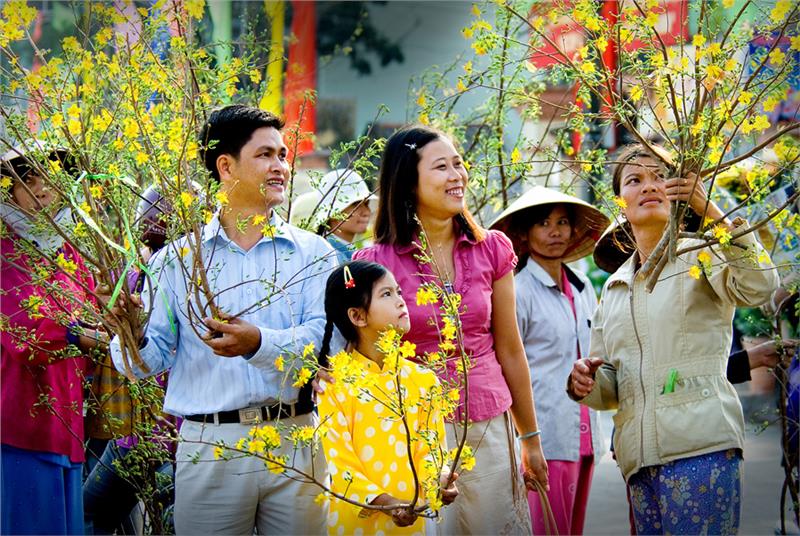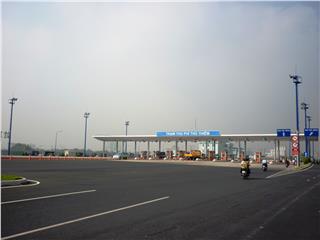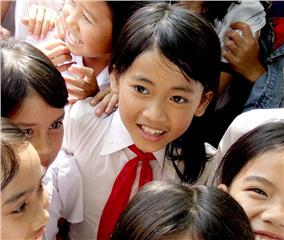The lifestyle of Vietnamese family is influenced profoundly by Confucianism. Although Vietnam had been dominated by Chinese for a thousand years and annexation of western powers, Vietnamese family customs remains its own features and Confucian belief.
Traditional values in Vietnam family
In Vietnam society, people believe that one needs to obey the moral norms which have been ruled in the society of Vietnam to become a good man, and reach human perfection. These norms consist of adoration for their ancestors and the old. However, his accomplishment is majorly led by the education and guidance of his surrounding environment, including his family and society, not himself. Normally, roles, privileges, and obligations of Vietnamese people are more stressed on group rather than on their private desires. Traditionally, Vietnamese family used to follow principles of extended family, a family with more than two generations: grandparents, parents, children, and grandchildren. In this type of family, the elders receive the highest respect from other family members. Therefore, the elders have rights to decide and rule everything in a family.
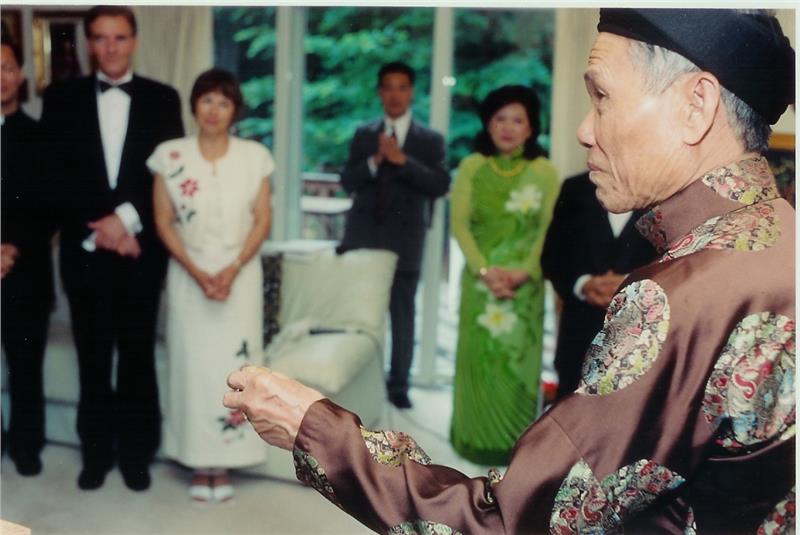
For centuries, Vietnamese traditional family values were proficient by the accomplishment of traditional roles of parents. In accordance with Vietnamese tradition, the man as father occupies the highest position in Vietnam family with the right to authorize the family in all fields. He plays his role in maintaining the source of income in the family. Meanwhile, household chores are believed to do by women as wives and mothers. They work in the kitchen and take care all family members from children to the elders. The duty of giving birth to a son in Vietnamese traditional family is a must. It is thought that the son will take his father’s duties to run the family after his father’s death. It is too strict that if no son were born the traditional family process would disappear forever. In the society of patriarchy, women in Vietnam society had few rights; also, their upbringing goes with strict disciplines, and they are educated less than men are. After getting married, women depended on their husbands, took care children and did all housework. They did not have rights to do what they want; they had to obey strict principles in their family and society.
Attitude towards relations in Vietnamese family
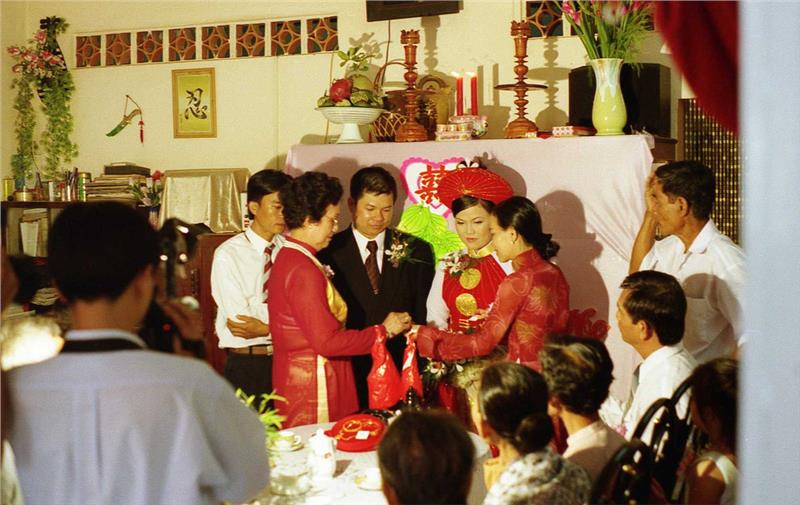
In mother and child relation, children are brought up by parents who teach them to have good behaviors according to the ethic norms. To Vietnamese people, family is the school in which children are taught principles of respects, obedience and ethic conducts. It is believed that these obligations are continuous forever, even when children grow older, or get married. The Vietnamese old people do not live by themselves, or live in nursing homes like Western life. After the death of their parents, they continue obeying the filial piety by worshiping ancestors. One uneducated with this obligation will be rejected and ostracized by other family members and society. In Vietnam culture, sibling relations are defined by the principle of seniority. It means that the younger need to respect and obey the elder. The eldest one will play his role in taking care others in case their parents are not at home. To relatives, members in extended family or in Vietnamese family nowadays have good relationship with each other. They will share same fate, give one another moral and material support. Younger family members are believed to have good behaviors, respect and love parental generation and elders.
Customs in Vietnamese family meal
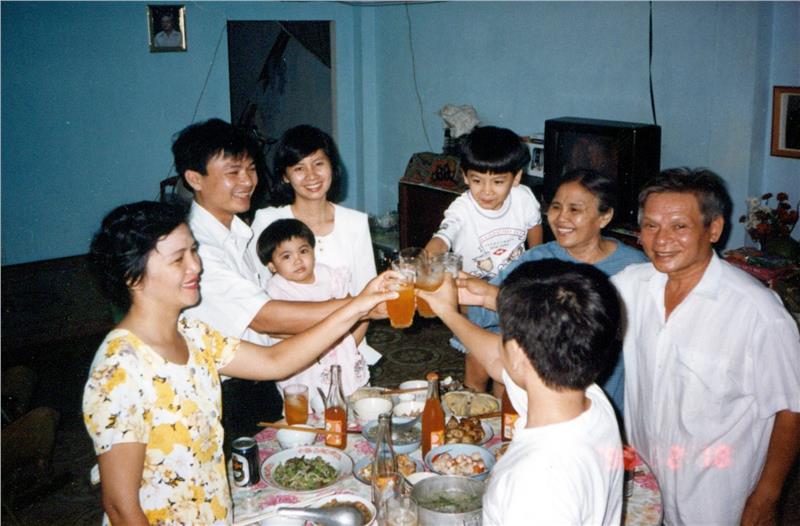
To Vietnamese people, eating time is the chance for all family members gather and share everything together, which means that family meal plays an important role in family life in Vietnam. In modern life, parents are always busy with their job. They have to take their children to school before going to work. Traditionally, women will prepare breakfast for all family members, but nowadays, due to the limited time this habit is ignored. Dinner is always family meal which is highly appreciated by Vietnamese people. As it is the time when all members in the family gather, share a meal other things together. In the past, traditional family in Vietnam was not familiar with eating out. Family meal is a way to maintain the happiness of Vietnamese family. By eating together, family members can understand feeling and favorite of each other. Relationships in Vietnamese family are more complicated than that in Western countries. However, ties and feelings between family members are strong and close even the change of time.
